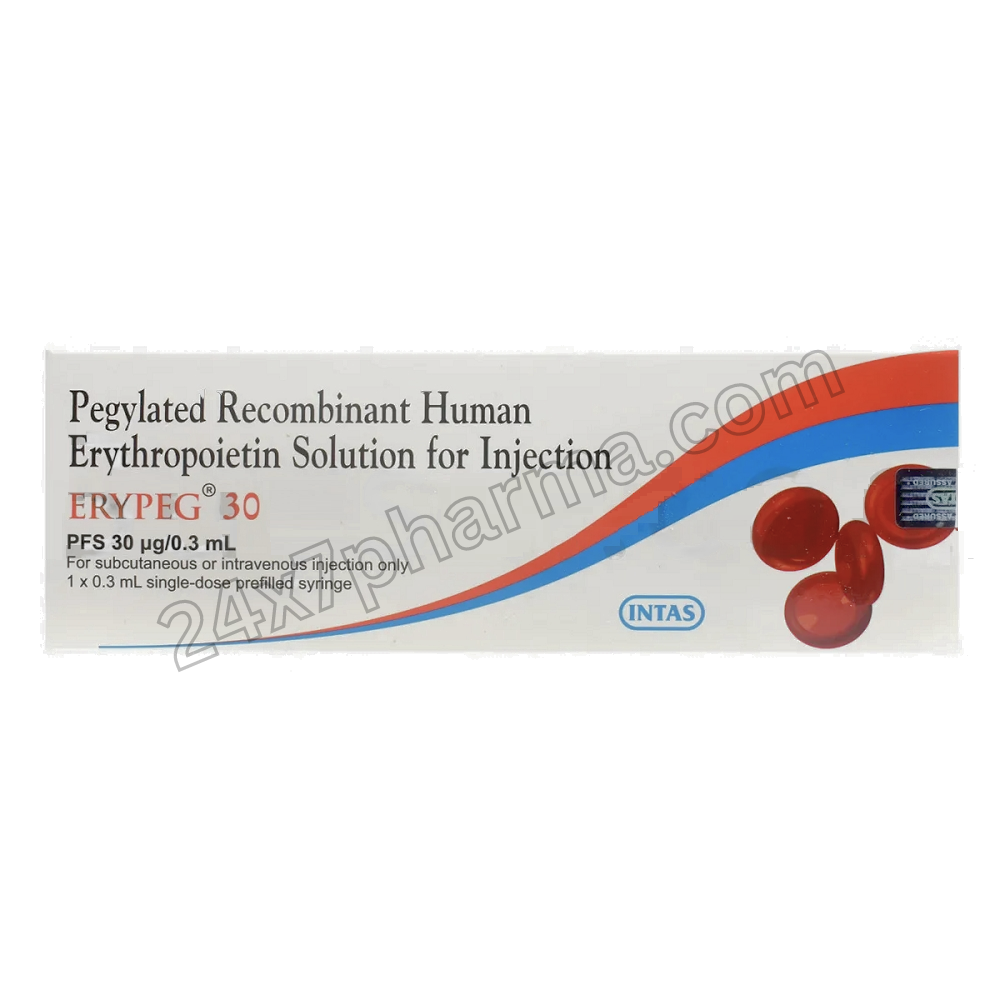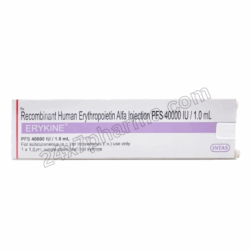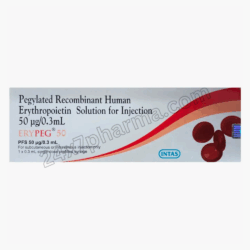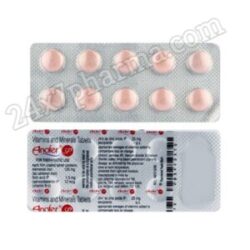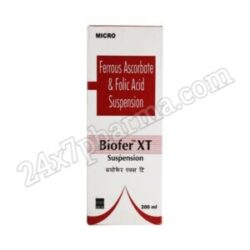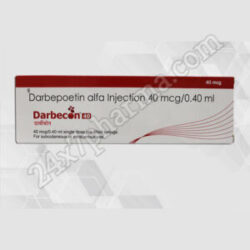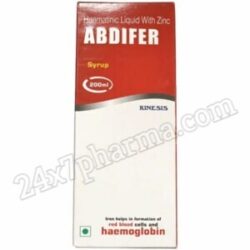What is ERYPEG 30 MCG Injection?
ERYPEG 30 MCG Injection is a medication designed to stimulate the production of red blood cells (RBCs) in the body. It contains a substance called Pegylated Erythropoietin, which mimics the natural hormone erythropoietin that the kidneys produce. Erythropoietin plays a crucial role in maintaining healthy levels of red blood cells, which are responsible for carrying oxygen throughout the body. When red blood cell counts drop significantly, it can lead to anemia, a condition that causes fatigue, weakness, and shortness of breath. ERYPEG 30MCG Injection is typically prescribed to patients suffering from anemia, especially those with chronic kidney disease (CKD) or individuals undergoing chemotherapy, which can also lead to anemia.
By boosting red blood cell production, this injection helps alleviate the symptoms of anemia and improves patients’ overall quality of life.
How Does ERYPEG Work?
The active ingredient in ERYPEG 30MCG Injection is Pegylated Erythropoietin, a long-acting form of erythropoietin. Normally, erythropoietin is produced by the kidneys in response to low oxygen levels in the body. It signals the bone marrow to produce more red blood cells, which helps increase oxygen transportation to tissues. In patients with conditions like chronic kidney disease or those undergoing chemotherapy, natural erythropoietin levels may be insufficient, leading to anemia.
Pegylation refers to the process of attaching polyethylene glycol (PEG) to erythropoietin, which extends its half-life and allows it to remain active in the body for a longer time. This modification reduces the frequency of injections needed and enhances the efficacy of the drug.
Once administered, ERYPEG 30MCG Injection binds to the erythropoietin receptors in the bone marrow, stimulating the production and maturation of red blood cells. As the red blood cell count increases, more oxygen is transported to the body’s tissues, reducing the symptoms of anemia such as fatigue and breathlessness.
Uses of ERYPEG 30 MCG Injection
ERYPEG 30MCG Injection is primarily used to treat anemia caused by the following conditions:
- Chronic Kidney Disease (CKD): Patients with CKD frequently experience anemia as a result of decreased production of erythropoietin.ERYPEG helps stimulate red blood cell production in these individuals, improving their overall energy levels and well-being.
- Chemotherapy-Induced Anemia: Certain cancer treatments, such as chemotherapy, can cause a significant decrease in red blood cells, leading to anemia. ERYPEG 30MCG Injection is used to counteract this effect and improve patients’ quality of life during their cancer treatment.
- HIV Patients on Zidovudine Therapy: Zidovudine, a medication used to treat HIV, can lead to anemia. ERYPEG may be prescribed to these patients to prevent or manage this condition.
- Prevention of Anemia in Premature Infants: In some cases, ERYPEG 30MCG Injection is used to prevent anemia in premature infants who are at higher risk of developing the condition due to their underdeveloped kidneys.
Other Dosages
The Medications with the Different Strengths :
While ERYPEG 30MCG Injection is generally well-tolerated, some patients may experience side effects. Common side effects include:
- Blood clots (thrombosis)
- Seizures
- Allergic reactions (rash, itching, swelling, severe dizziness, or difficulty breathing)
- Stroke or heart attack (especially in patients with a history of cardiovascular disease)
If you experience any of these serious side effects, seek immediate medical attention.
Warnings and Precautions
Before using ERYPEG 30MCG Injection, patients should be aware of the following warnings and precautions:
- Allergy: Patients who are allergic to erythropoietin or its components should not use this medication.
- Hypertension: Since ERYPEG can cause an increase in blood pressure, patients with uncontrolled hypertension should avoid using this injection unless advised by a healthcare provider.
- History of Cardiovascular Disease: Patients with a history of heart attack, stroke, or blood clots should discuss their medical history with their doctor, as this medication can increase the risk of such events.
- Seizure Disorders: Those with a history of seizures should use ERYPEG with caution, as rapid increases in red blood cell production could trigger seizures.
- Pregnancy and Breastfeeding: The safety of ERYPEG in pregnant or breastfeeding women has not been fully established. Women who are pregnant or nursing should only use this medication if the potential benefits outweigh the risks, as determined by their doctor.
- Monitoring Blood Parameters: Regular blood tests are essential for patients using ERYPEG to ensure that their red blood cell levels remain within the desired range. Overproduction of red blood cells can lead to complications such as blood clots.
FAQs about ERYPEG
Q1. Can I self-administer ERYPEG 30MCG Injection at home?
Ans: In some cases, healthcare providers may train patients or caregivers on how to administer the injection at home. However, it is essential to follow the doctor’s instructions closely and maintain regular check-ups.
Q2. Is ERYPEG 30MCG Injection safe for children?
Ans: ERYPEG is sometimes used in premature infants or children with anemia, but its safety and efficacy in pediatric patients should be carefully monitored by a healthcare provider.

